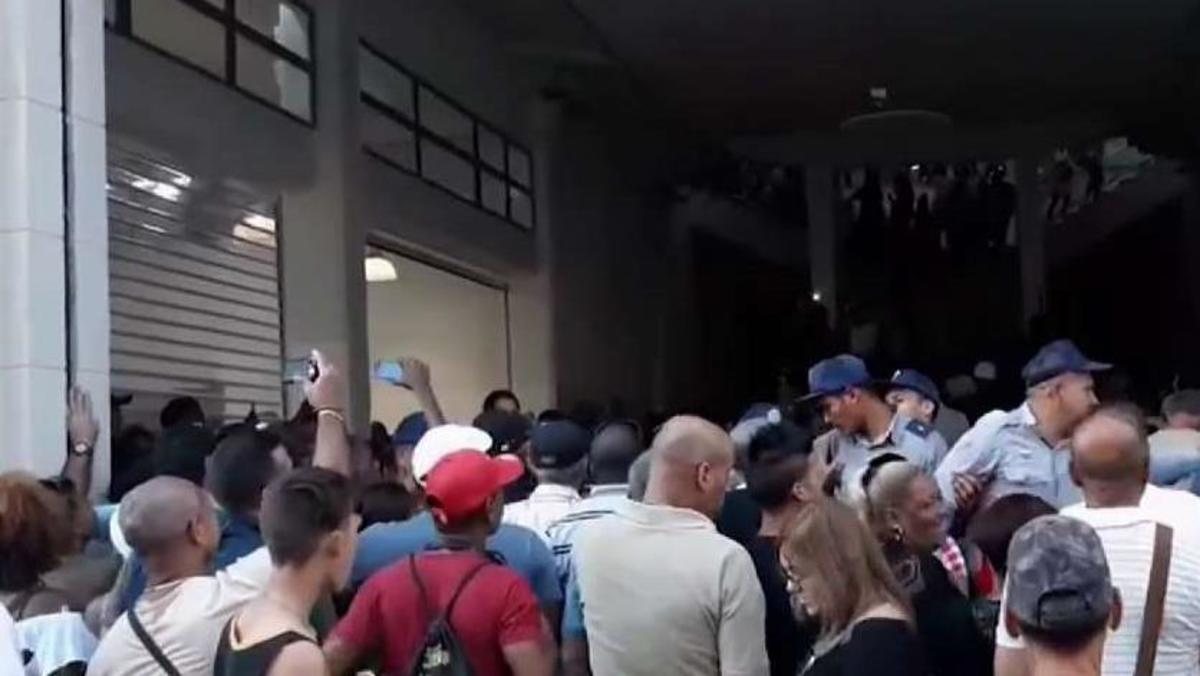The riots in a humble neighborhood, at the opening of the Cuatro Caminos supermarket –now refurbished, "dollarized" and touted with much ado by the authorities– may have been a wake-up call for Cuba's higher-ups. Or, it should be.
It is ironic how the authorities accuse "a dark hand" of having been behind what they have, laughably, dubbed "The Battle of Cuatro Caminos." Another ridiculous touch has been the theatrical rejection of the "violence" by the very people who forced their ways into the supermarket and vandalized it. No one was hooded, not even when wielding firebombs to burn the city's public facilities and shops.
It is also worth remembering that the Cuban revolution arrived amidst rampant bloodshed and violence, and went on to foment it for six decades in the country, and export it to Latin America, Africa and Asia. So, why this excessive reaction to such a hyperlocal event?
The most plausible answer is that it represents an ominous threat to Castro's gerontocracy, and complicates what the Ministry of Interior calls the "national operational situation." Apparently, the elite in power realized that the social outbreaks they wish upon every government they don't like can affect them too.
In Cuba there is massive socioeconomic dissent outside the country's organized political opposition. This is what Nicolas Ceausescu did not understand when he boasted of having infiltrated and controlled every opposition organization in Romania. The population constituted his biggest enemy. And social demands were his Achilles heel. There are not enough prisons or police to neutralize it.
The CPC's Central Committee should take a good look at the euphoric report written by Jorge Risquet in 1989 upon his return from a conversation with Ceausescu, the bloodthirsty Romanian dictator, just weeks before his fall. According to Risquet, everything was under control. This may enlighten them about the dangers of stubbornly not lifting prohibitions, respecting rights and abandoning a failed system before it is too late.
Being a fool is not heroic, as Silvio Rodríguez suggested in one of his songs from the previous Special Period, but rather stupid. It is also criminal.
